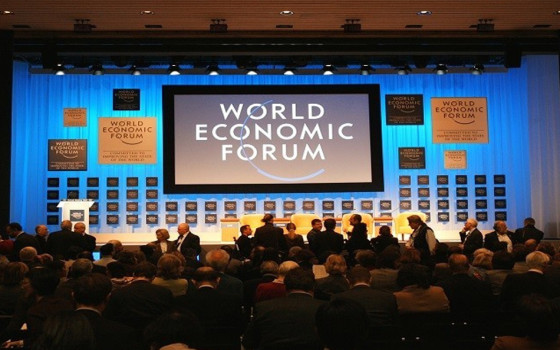
Balancing efficiency, sustainability, and justice... A Davos report calls for adopting a new approach in dealing with economic growth.

- Europe and Arabs
- Wednesday , 17 January 2024 17:44 PM GMT
Davos: Agencies
A recent report issued by the World Economic Forum in Davos on Wednesday called for adopting a new approach in dealing with economic growth that would balance efficiency, sustainability and fairness in the long term, while studying speed and quality together. It called for a re-evaluation of global economic growth and the introduction of a new framework. It takes a comprehensive look at GDP as well as the quality of growth across 107 economies. According to the Middle East News Agency
The report - which was published on the forum's website today - stated that high-income economies scored high in innovation and inclusion, while low-income economies scored high in sustainability.
According to the report, the new Future Growth Initiative will help policymakers and economists address balancing growth with the goals of innovation, inclusion, sustainability and resilience.
The Future Growth Report 2024 highlights a significant economic slowdown, which is expected to decline to its lowest rate in three decades by 2030, amid ongoing economic and geopolitical shocks. This downturn exacerbates a set of interconnected global challenges, including the climate crisis and social downturn, which collectively reverse progress in global development.
For her part, Saadia Zahidi, Director-General of the World Economic Forum, said: “Reviving global growth will be necessary to confront major challenges, but growth alone is not enough.” “The report proposes a new way to evaluate economic growth that balances efficiency, long-term sustainability, resilience and equity, as well as innovation for the future, in line with global and national priorities.”
The report launches alongside the Forum's Future Growth Initiative, a two-year endeavor aimed at reimagining economic growth and supporting policymakers from around the world, along with economists and other experts, in identifying the best paths to achieving balance. And the goals of growth, innovation, inclusion, sustainability and flexibility.
The report revealed that most countries continue to grow in ways that are unsustainable, non-inclusive, limited in their ability to absorb or generate innovation, and reduce their contribution and vulnerability to global shocks.
At the individual level, none of the 107 economies covered in the report scored higher than 80 on any of the four dimensions of the framework. The report provides country-level data that allows policymakers to assess the character and nature of a country's economic growth and identify potential areas for improvement and synergies.
High-income economies, with an average GDP per capita of $52,475 (purchasing power parity) in 2023, saw average annual GDP per capita growth of 1.01% over the past five years, 2018-2023. Its overall growth trajectory is characterized by high scores for inclusiveness (68.9), innovation (59.4) and flexibility (61.9), but there is room for improvement in sustainability (45.8).
Countries in this group include Australia, Canada, France, Germany, Italy, Japan, Saudi Arabia, South Korea, the United Kingdom, and the United States.
Notable high scores include Switzerland (80.4), Singapore (76.4) and the United States (74.1) on innovation, Finland (77.7) and Canada (75.8) on inclusion, Sweden (60.9), Germany (56.3) and the United Kingdom (54.0) on sustainability, Australia (69.5) and Japan (66.3) in terms of flexibility.












No Comments Found